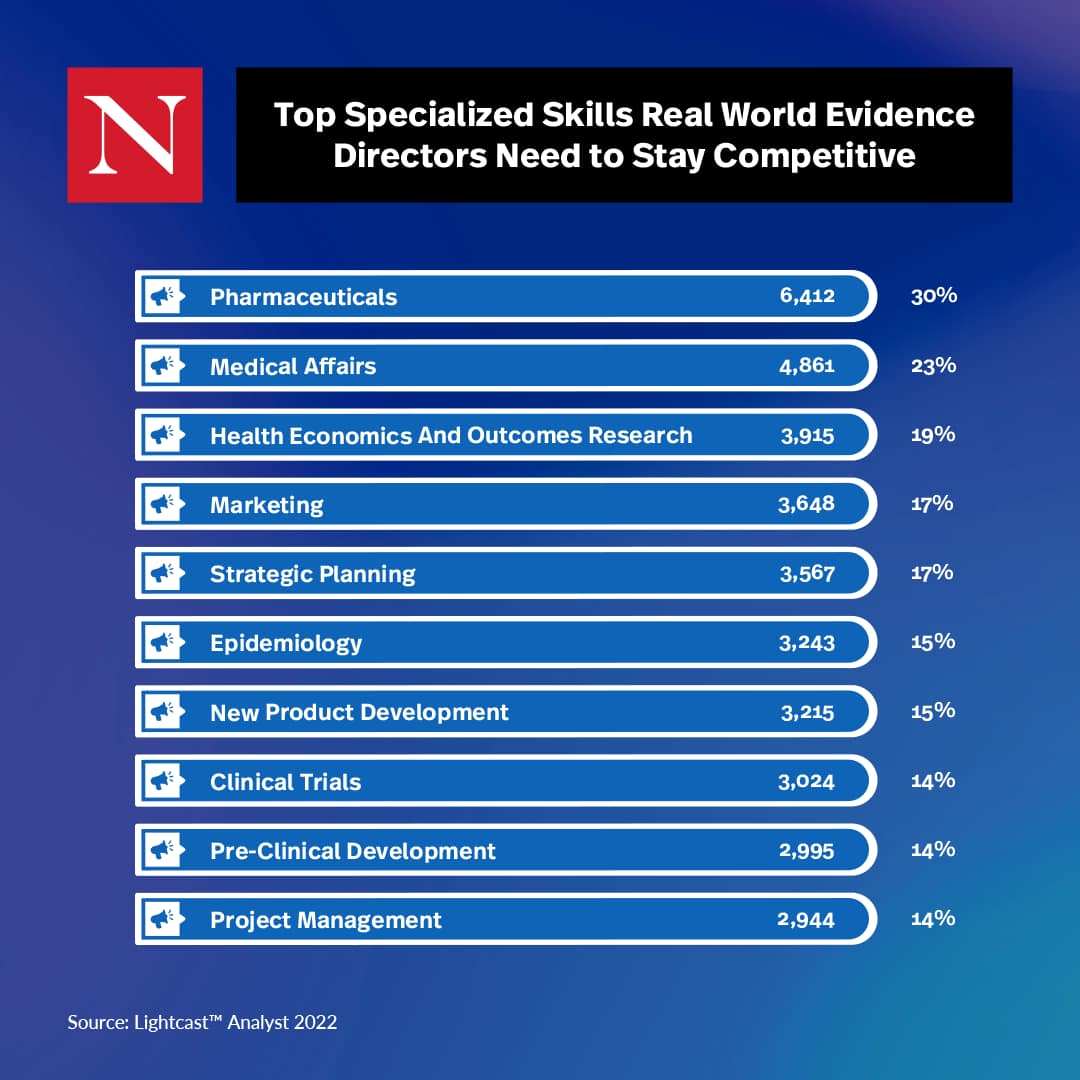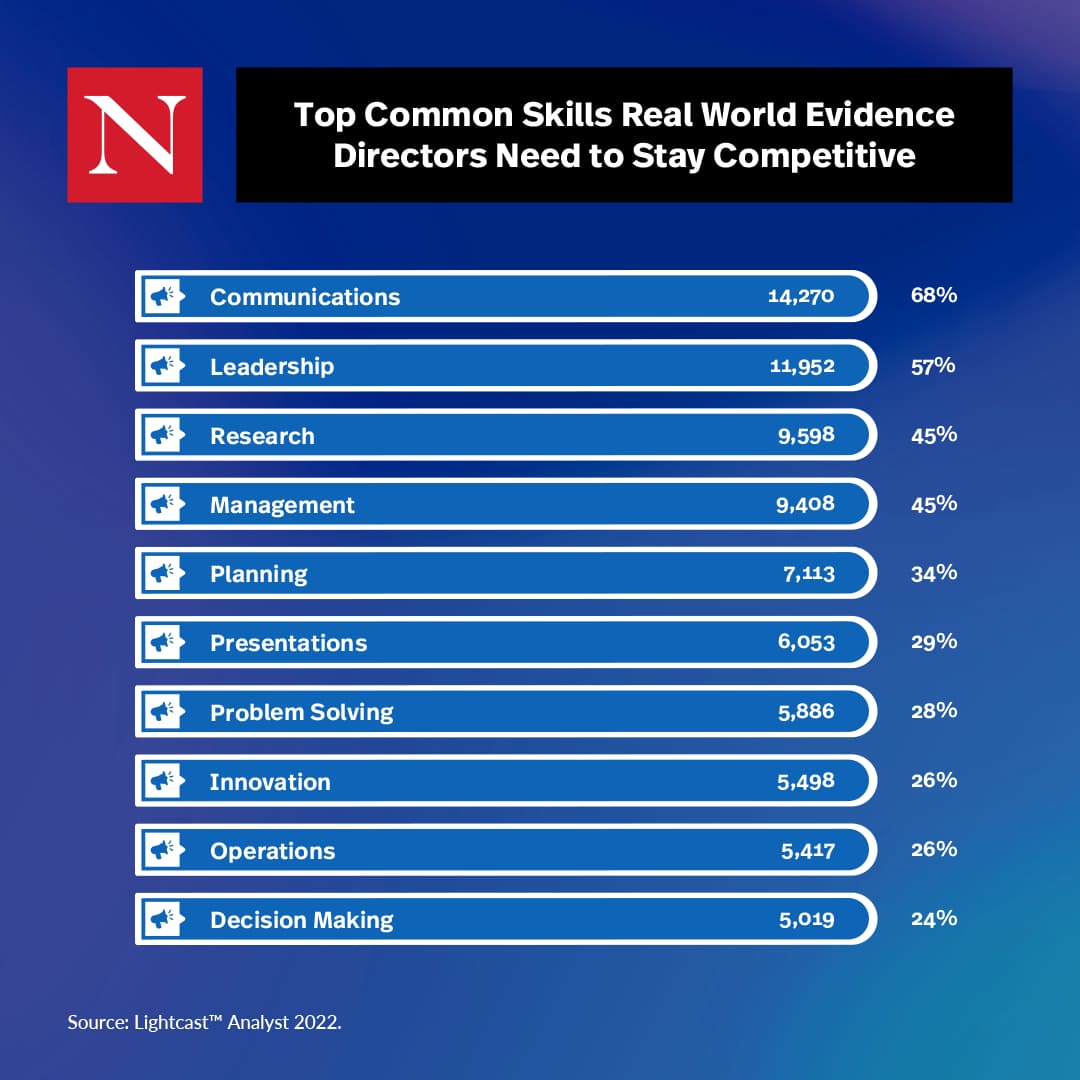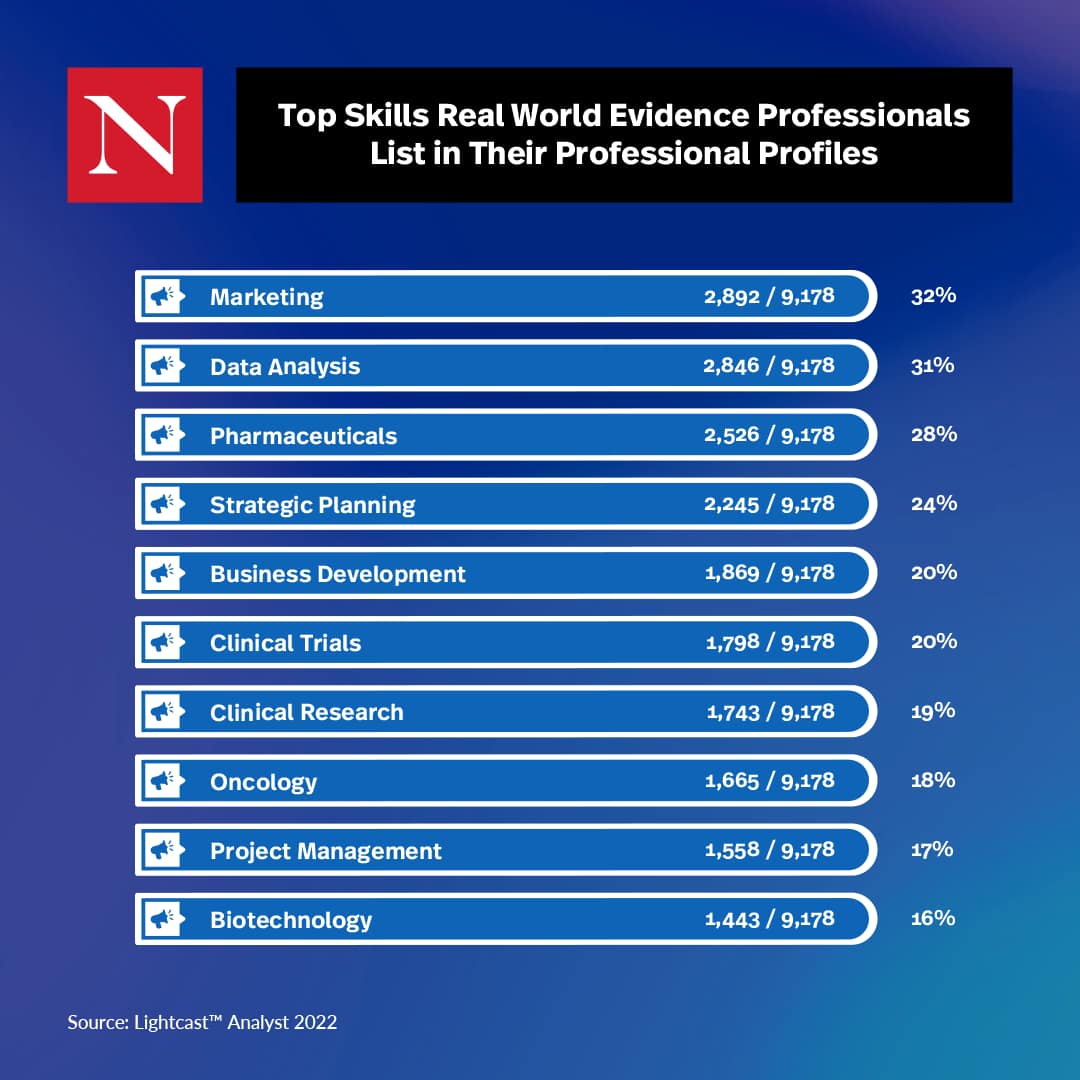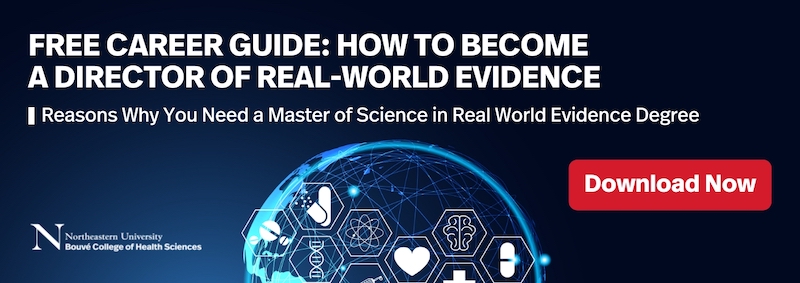There has been an immense influx of data in recent years as the ability to capture it has become easier. With this rise in data, however, there’s a pressing need to make sense of it. Data alone doesn’t tell the whole story.
For this reason, real-world evidence is becoming increasingly popular. There are several career opportunities for prospective real-world evidence professionals, including director-level positions. Here’s an overview of what a director of real-world evidence is, how to become one, and the role a master’s degree can play in finding a position.
What Is a Director of Real-World Evidence?
Directors of Real-World Evidence (RWE) have differing responsibilities dependent on the industry they work in and the company that employs them. In general, however, directors of real-world evidence manage functional teams responsible for making sense of real-world data. These teams are responsible for conceptualizing, analyzing, and communicating the results of a study using observational health data to answer clinical questions. Although these teams do most of the data analysis, directors need this expertise to effectively oversee RWE projects from start to finish and set strategic goals. Their responsibilities typically include developing clinical questions, building methods, and answering analytical questions throughout the process.
Interested in a Career in Real-World Evidence?
Download our free guide to learn the skills you need to advance in the field.
In the pharmaceutical industry, for example, a RWE director might oversee the analysis of real-world data to generate evidence on real-world performance of a newly approved drug. The goal is to answer questions about its safety and efficacy outside of controlled clinical settings, so regulatory agencies and providers understand the potential benefit of using these therapies at scale.
How To Become a Director of Real-World Evidence
Real-world evidence is a growing field with many pathways to becoming a director. This fact might seem surprising as many positions involving real-world evidence, such as health outcomes researchers, don’t include “real-world evidence” in the title—despite the fact their responsibilities are largely the same. For this reason, there’s limited data on the qualifications you need for RWE positions. However, similar job titles and positions that involve real-world evidence expertise require the following qualifications.
Educational Requirements
The first step to becoming a RWE director is fulfilling the educational requirements. Directors of real-world evidence need at least a bachelor’s degree to enter the field, but many professionals also earn a master’s or professional degree.
According to our analysis of job postings data for careers in the health data and life sciences industry that require real-world evidence experience:
- 47 percent of job postings require a bachelor’s degree
- 44 percent require a master’s degree
- 32 percent require a PhD or professional degree

While many real-world evidence positions require graduate-level education, many employers are willing to substitute relevant experience. According to Kristin Kostka, director of the OHDSI Center at Northeastern University’s Roux Institute, “People often think a PhD is proof you know how to do independent research . . ., [but] sometimes it’s substituted with years of experience.”
The good news is even if you haven’t held a real-world evidence position in the past, that doesn’t mean you don’t have relevant experience to include on your resumé. There are many positions that can potentially lead to a leadership role in real-world evidence.
Experience Requirements
RWE directors sometimes transition into this role from previous positions such as data scientists or senior analysts. They’ll often progress incrementally from lower-level roles to higher levels within a company. For example, a director of real-world evidence might move into an initial managerial role, then progress to senior manager, then to associate director, and finally to director. The amount of experience required varies based on the company’s expectations and how much time you’ve spent in the company.
Not every prior role will be a part of a real-world evidence team, but a background in health outcomes, health economics, or data management in real-world data analytics are excellent pathways to a RWE director.
Skills Required
Real-world evidence directors need several skills to succeed in the field. For example, according to Kostka, agile and scrum training are becoming increasingly popular in the RWE field. “Software development has infiltrated everything,” says Kostka, “and a lot of people in this space kind of are mirroring principles of software development by saying ‘agile training’ or ‘scrum.'” Different positions may require different competencies, however, so it’s important for prospective real-world evidence directors to familiarize themselves with the potential skills they’ll need to obtain to lead a real-world evidence team.
Specialized Skills
Similar positions to directors of real-world evidence require a combination of both specialized and common skills. Specialized skills, also known as “hard skills,” are job-specific abilities that are developed via training in the field. A strong knowledge of these skills is important to succeed, although different roles may emphasize some skills higher than others.
According to our analysis of job postings data, the most common specialized skills included in job postings are:

- Pharmaceuticals
- Medical Affairs
- Health Economics and Outcomes Research
- Marketing
- Strategic Planning
- Epidemiology
- New Product Development
- Clinical Trials
- Pre-clinical Development
- Project Management
Common Skills
Common skills, also known as “soft skills,” aren’t job-specific but are just as important, particularly for directors who have to oversee a team. For example, in the healthcare industry, real-world evidence directors often work with cross-functional teams as well as overseeing teams of their own. This collaboration calls for excellent interpersonal abilities, leadership, and communication.
The most common soft skills in real-world evidence director job postings include:

- Communications
- Leadership
- Research
- Management
- Planning
- Presentations
- Problem-Solving
- Innovation
- Operations
- Decision Making
Skills Professionals List in Their Profile
In addition to skills included in job postings, it’s important for aspiring directors to learn from those already working in the industry. Individuals with skills in real-world evidence frequently list the following skills on their professional profiles:

- Marketing
- Data Analysis
- Pharmaceuticals
- Strategic Planning
- Business Development
- Clinical Trials
- Clinical Research
- Oncology
- Project Management
- Biotechnology
The Importance of a Real-World Evidence Degree
Producing reliable evidence is an incredibly important task in the development of medical technologies or other advancements. For this reason, it’s incredibly important to enter the field equipped with the skills you need to succeed. An effective real-world evidence master’s program can set you apart from the competition by building your knowledge and skills and increasing your overall earning potential. With a relevant master’s degree, you also have a higher chance of entering an upper-level role like a director of real-world evidence.
Finding the Right Program
One of the best ways to learn about this exciting new field is to combine education with real-world experience. Experiential programs, such as Northeastern University’s Master of Science in Real-World Evidence in Healthcare and Life Sciences, are an excellent way to put the knowledge and skills you obtain into practice before entering the field. According to Kostka, “you’re going to walk away from this program with the toolkit to be able to both be an individual contributor, as well as a leader of teams.”
Hoping to land a leadership position in real-world evidence? Consider applying for Northeastern University’s Master of Science in Real-World Evidence to get started making a positive difference in the lives of others.







Related Articles
4 Pressing Global Health Problems We Face Today
Global Health Careers: How Can I Make a Difference?
Compliance Specialists: Who They Are and What They Earn